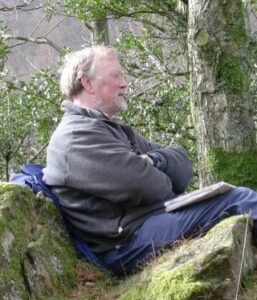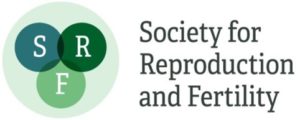It is with great sadness we report the death of Dr Harry Charlton FMedSci FRS, Emeritus Reader in Neuroendocrinology at the Department of Human Anatomy and Genetics and Emeritus Fellow of Linacre College, University of Oxford on 5th August 2023 at the age of 84. Harry was a strong supporter of the Society for the Study of Fertility (the forerunner of the SRF), serving on the SRF Committee and organising SSF conferences in Keble College Oxford. He gave the Walpole lecture in 1983 and was awarded the Society’s Marshall Medal in 2003.Harry was born Henry Marshall Charlton on 10 March 1939 in South Shields, Tyne and Wear, which explains his ready ability to switch to an authentic “geordie” accent on demand.
He studied Zoology at Corpus Christi College, University of Oxford, initially on a scholarship as an undergraduate student and then continued to graduate study and a lectureship in the Department of Anatomy, Oxford under Professor Geoffrey Harris.Harry was an outstanding experimental endocrinologist. His early work focussed on the environmental and neuroendocrine control of LH secretion from the anterior pituitary in voles but it was the serendipitous discovery by Bruce Cattanach at Harwell of a mouse mutant in which exhibited extreme hypogonadism that really sparked Harry’s research. This hypogonadal (hpg) mutant mouse provided Harry with the ideal tool to investigate the hypothalamic control of the pituitary. Harry showed that hpg mice have extremely low levels of pituitary gonadotrophins and lacked functional GnRH. Episodic, not continuous, treatment with exogenous GnRH restored pituitary and gonadal function. He went on to use transplanted hypothalamic tissues to investigate the biology of the GnRH neurones. This work showed that the brain is not an absolutely privileged site, that CNS tissues express class I MHC molecules and that the site of neural tissue transplantation is important in the immunological response.
He later investigated the immunological consequences of injecting viral vectors into the brain in the context of gene therapy. His outstanding scientific achievements were recognised when he was appointed a Fellow of the Royal Society in 1994. Harry’s natural excitement for scientific exploration was infectious and he was an excellent and enthusiastic teacher. Many years of students in tutorials, lectures and the dissecting room benefited from the clarity of his mind and his passion for understanding science.
He also had a wonderful sense of humour: Harry had booked a table for a yearly group lunch – on arrival he was asked what name the booking was in – with a straight face he replied “Mr H.P. Gonad”.Harry also loved the simple life. One of his early dreams was to grow potatoes and run a market garden on the Isle of Mull where he spent many years on holiday. Other loves included walking in the Lake District and playing Real Tennis at Merton College. While he was a student at Oxford, Harry met his wife Margaret, then a medical student, in the Radcliffe Science Library. Margaret sadly passed away in October 2019 after a devoted 55-year marriage. They are survived by their two children, Andrew and Jennie, and three Grandchildren, Luke, Isobel and Inka.
Written by Stuart Milligan


